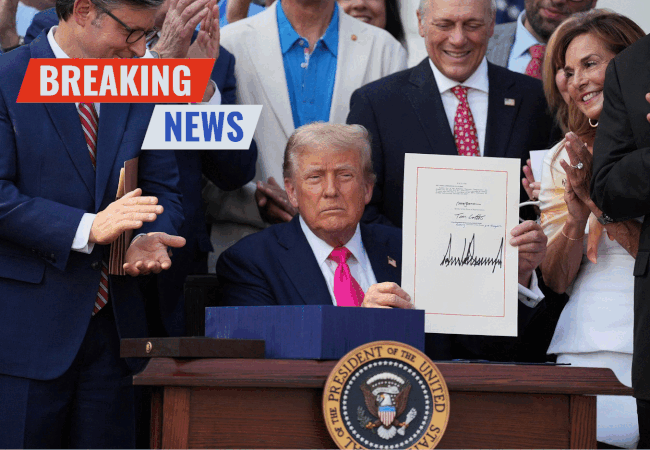Representing Rabbi Rafe Konikov and Chabad, attorney Jeff Bragman addressed traffic, parking, and design issues.
Among other variances, Chabad is seeking relief from the requirement to provide total onsite parking. With the driveway and existing parking area being used by residents of the house, Bragman argued that the remaining 13-23 spaces needed by congregants could be handled via on-street parking.
Plenty Of Parking, Says Chabad
In yet another heated session, the Chabad of Southampton Jewish Center came before the Southampton Village Zoning Board of Appeals last Thursday. The applicants are seeking a special exception permit from their designated residential zoning status in order to continue operating as a house of worship and community center.
Representing Rabbi Rafe Konikov and Chabad, attorney Jeff Bragman addressed traffic, parking, and design issues.
Among other variances, Chabad is seeking relief from the requirement to provide total onsite parking. With the driveway and existing parking area being used by residents of the house, Bragman argued that the remaining 13-23 spaces needed by congregants could be handled via on-street parking.
Bragman invited Steve Schneider, of Schneider Engineering, to present the findings of his study of traffic flow and parking availability on Hill Street over several months.
Schneider reviewed traffic and parking patterns over a period of several months, specifically including Easter Sunday, during which parking is heaviest at the neighboring Catholic church located two doors east of Chabad. He concluded there is ample street parking available. The board wanted numbers on parking during the Chabad’s high holy days.
The applicants have previously explained that from September to May, there would be no more than 40 people in the house, and from June to August, there would be no more than 65 people. They are requesting permission for three separate events throughout the year that would draw in up to 80 people.
Village attorney Rick DePetris said that neighbors to the west of Chabad might have problems pulling out of their driveways if there is a train of parked cars along the curb.
Schneider suggested putting up signs that limit the amount of parking, but board member Richard McMahon said that those limitations would unfairly extend to guests visiting the neighbors.
Board member Rob DeVinney added later, “We have a small village here; we’re not trying to Brooklynize it overnight.” It was agreed that parking to the west would be kept to a minimum because there was ample parking to the east of the property.
Schneider also criticized a document dubbed the “Cantor Report,” which was submitted to the board last February. It stated that the Chabad house would generate traffic congestion and worsen parking conditions, making it “unsafe for pedestrians and the surrounding community.”
The report was inappropriate, argued Schneider, in part, because its author, Martin Cantor, is a Certified Public Accountant, not an engineer.
“I’m a little shocked that someone was trying to give engineering credibility . . . to someone with no engineering background,” he told the board.
With its “very vague accusations,” Schneider continued, the report was also absent of empirical data. There was no indication of how Cantor got his numbers, he added.
“I was taken aback by the report in general,” said Schneider.
Representing the neighbors who oppose the Chabad application, David Peirez was not impressed with Schneider’s traffic report. “I thought it was a total joke and that it was embarrassing,” he said last Friday. “Instead of answering the questions [Schneider] fought the board. I thought he was a buffoon.”
Next Bragman invited Richard Warren of Inter Science Research Associates to present design plans requested by the board.
These involved moving the driveway to the eastern side of the property, a change Chabad argues is cumbersome and unnecessary. Stating that these plans were unfair to the applicant Warren offered a fifth version, which would leave the driveway where it is and add improved landscaping. Board member Rob DeVinney was amenable to the final plan.
In his closing arguments, Bragman criticized a memo to the board drafted by DePetris on September 13, 2005 as being without “discussion of key constitutional issues.”
“In this country you don’t need a license to pray,” Bragman continued. “The government can’t do it, the building inspector can’t do it . . .”
Bragman said that there is no language in the village’s code that requires accommodation. This is important because “municipalities must fashion solutions to permit churches rather than” deny them.
To bolster his case, Bragman introduced attorney Nathan Lewin, a constitutional expert who has argued cases before the U.S. Supreme Court.
Lewin noted that the Religious Land Use and Institutionalized Persons Act of 2000 prohibits zoning and landmarking laws that substantially burden the religious exercise of churches or other religious assemblies or institutions.
Lewin then referred to a court case that involved Konikov’s cousin, Rabbi Joseph Konikov in Florida. After advertising on the Internet that people could come to his house and pray, Orange County authorities said he needed a special exception to use a house in a residential neighborhood for religious services.
Following a lawsuit, a dismissal, and an appeal, the court ruled that the county did not treat his religious assembly as equally as non-religious assemblies.
Given the lateness of the hour, Peirez requested the application be adjourned until the board’s next meeting, on February 23 at which time he will present the case for the opposition. The board agreed.













Qoutable Quote
“We have a small village here; we’re not trying to Brooklynize it overnight.”
Makes us here in Brooklyn feel proud